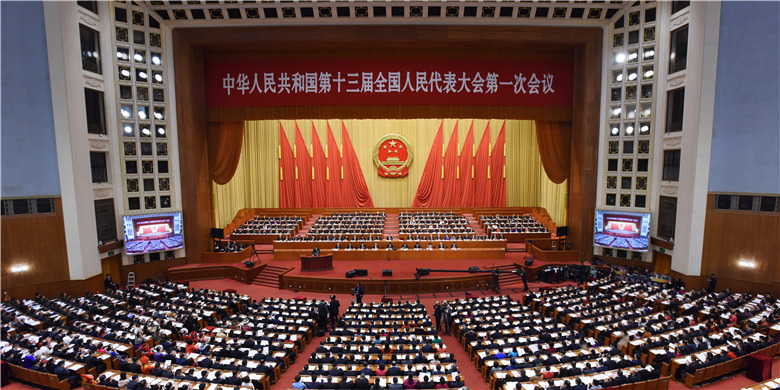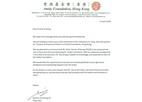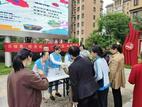During the 2018 annual plenary sessions of the NPC&CPPCC held in March, Yu Zhengsheng, Chairman of the National Committee of the CPPCC, and Li Keqiang, the Chinese Premier, talked on religious work in their work reports.
On March 3, 2018, the opening meeting of the first session of the 13th CPPCC National Committee was held in Beijing.
Recalling the past five year's work, Yu said, "We've honestly observed and studied the messages and spirits of the second central work conferences on Xinjiang, Tibet, and religious affairs. Important attention was also given to religious affairs. We invited religious representatives, to conduct service and investigations on revised religious affairs regulations.We continued to host discussions with religious representatives and ethnic minority representatives to listen to their voices and to fight against terrorism, extremism, and separatists' activities."
Regarding suggestions on future religious work, he claimed, "Uphold the principle that religions in China must be Chinese in orientation and provide active guidance to religions so that they can adapt themselves to a socialist society."
At the first session of the 13th National People's Congress (NPC) started on March 5, Premier Li mentioned religious work in the report of the work of the government.
Li stated, "Over the past five years, we have made new improvements in work related to ethnic groups, religion, and overseas Chinese nationals. We have supported faster development in areas with large ethnic minority populations, and have seen efforts to promote ethnic unity and progress truly paying off. We have actively guided religions in adapting to a socialist society. Overseas Chinese nationals, Chinese nationals who have returned from overseas, and the relatives of overseas Chinese nationals who reside in China have made their own unique contributions to the country's modernization."
Li said on the new year's government work, "We will fully implement the Party's basic policy on religious affairs, uphold the principle that religions in China must be Chinese in orientation, promote harmony between religions, and encourage religious leaders and believers to actively involve themselves in promoting economic and social development."
- Translated by Karen Luo











